12 Dividend Stocks That Hedge Funds Love


Profit and prosper with the best of Kiplinger's advice on investing, taxes, retirement, personal finance and much more. Delivered daily. Enter your email in the box and click Sign Me Up.
You are now subscribed
Your newsletter sign-up was successful
Want to add more newsletters?

Delivered daily
Kiplinger Today
Profit and prosper with the best of Kiplinger's advice on investing, taxes, retirement, personal finance and much more delivered daily. Smart money moves start here.

Sent five days a week
Kiplinger A Step Ahead
Get practical help to make better financial decisions in your everyday life, from spending to savings on top deals.

Delivered daily
Kiplinger Closing Bell
Get today's biggest financial and investing headlines delivered to your inbox every day the U.S. stock market is open.

Sent twice a week
Kiplinger Adviser Intel
Financial pros across the country share best practices and fresh tactics to preserve and grow your wealth.

Delivered weekly
Kiplinger Tax Tips
Trim your federal and state tax bills with practical tax-planning and tax-cutting strategies.

Sent twice a week
Kiplinger Retirement Tips
Your twice-a-week guide to planning and enjoying a financially secure and richly rewarding retirement

Sent bimonthly.
Kiplinger Adviser Angle
Insights for advisers, wealth managers and other financial professionals.

Sent twice a week
Kiplinger Investing Weekly
Your twice-a-week roundup of promising stocks, funds, companies and industries you should consider, ones you should avoid, and why.

Sent weekly for six weeks
Kiplinger Invest for Retirement
Your step-by-step six-part series on how to invest for retirement, from devising a successful strategy to exactly which investments to choose.
Dividends are a precious perk.
Research over the past few years from FactSet, Ned Davis Research and River Road Asset Management, among others, has illustrated the long-term benefits of owning dividend stocks versus their non-paying peers. A 2019 Hartford Funds study showed that $10,000 invested in Standard & Poor’s 500-stock index in 1960 would have generated $460,095 excluding the effect of dividends … but $2,571,920 once dividends were reinvested.
No wonder, then, that dividend stocks are a favorite holding of numerous “smart money” investors. Even Warren Buffett’s Berkshire Hathaway (BRK.B) – which famously does not pay a dividend because Buffett believes he can allocate profits in better ways – has depended on numerous income-generating stocks for its long-term market outperformance.
Hedge funds are no different. According to WalletHub data gathered from regulatory filings, more than two-thirds of the most popular holdings among hedge-fund managers offer up some sort of dividend, and the majority of those out-yield the market. These stocks provide defense in market downturns, and compounding dividends over time contribute to long-term returns.
Here are a dozen dividend stocks that are popular among hedge funds. Better still, all of the following stocks yield more than the S&P 500 at present.
Data is as of April 1, 2019, unless otherwise noted. Companies are listed in reverse order of popularity with hedge funds, according to WalletHub. Dividend yields are calculated by annualizing the most recent quarterly payout and dividing by the share price. Analysts’ ratings provided by FactSet via WSJ.com.
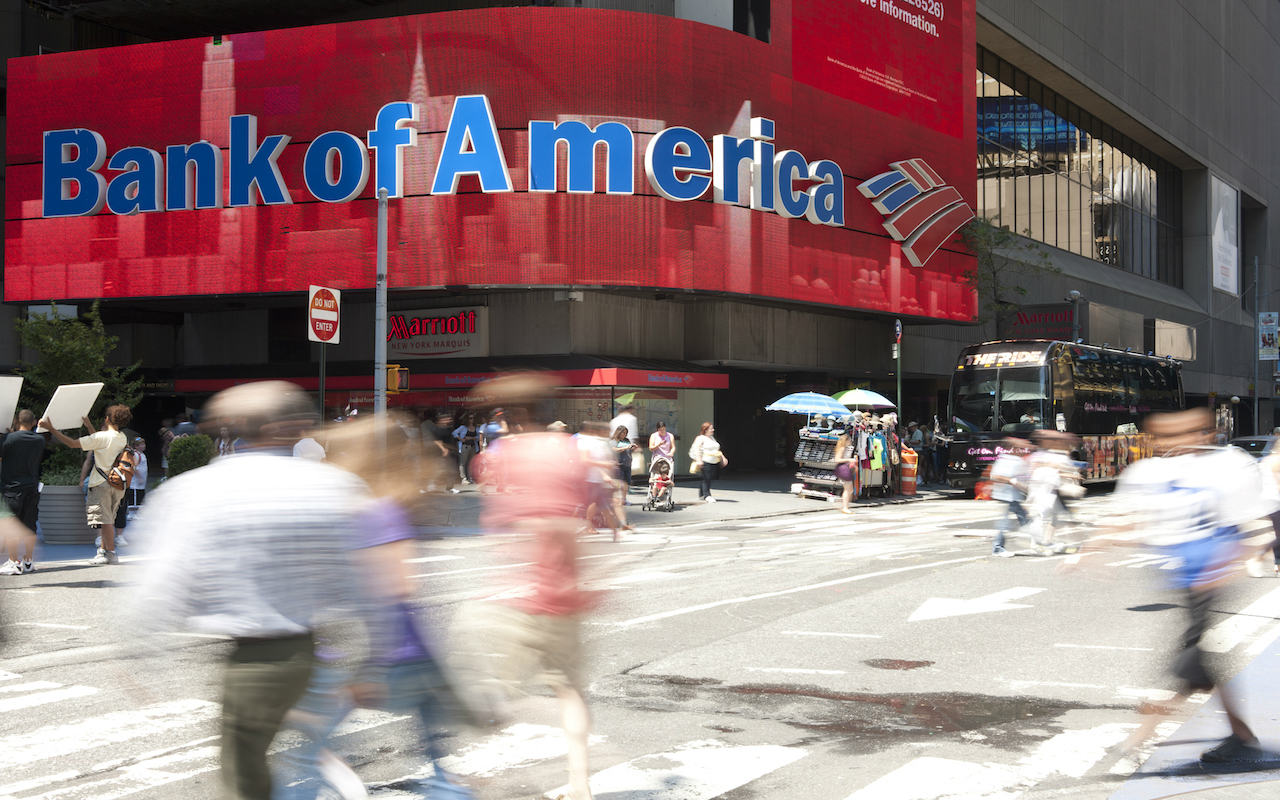
Bank of America
- Market value: $276.6 billion
- Dividend yield: 2.1%
- Analysts’ opinion: 14 strong buy, 4 buy, 11 hold, 0 sell, 0 strong sell
“Big Four” bank stock Bank of America (BAC, $28.54) is loved by both hedge funds and Warren Buffett alike. The nation’s second-largest bank by assets and market value is a top Berkshire holding. The stake worth $25.6 billion is second only in value to its $48 billion investment in Apple (AAPL).
Buffett initially bet on Bank of America in 2011 with a $5 billion investment in its preferred shares. Then in 2017, he exercised warrants to purchase a stake in 700 million common shares, which he has since expanded to about 900 million shares. That bet is paying off in 2019, with BAC outperforming by more than 2 percentage points.
As a massive money-center bank, BAC is almost unavoidable for hedge funds looking to make big bets on the financial sector. It’s also a bit more of a contributor on the income front than it was a few years back.
BofA was among a horde of bank stocks that had to slash dividends during the financial crisis, dropping from a quarterly payout of 64 cents per share in 2008 to a mere penny per share in 2009. But the bank started a string of dividend increases in 2014 that has brought its payout back to a more attractive 15 cents per share.
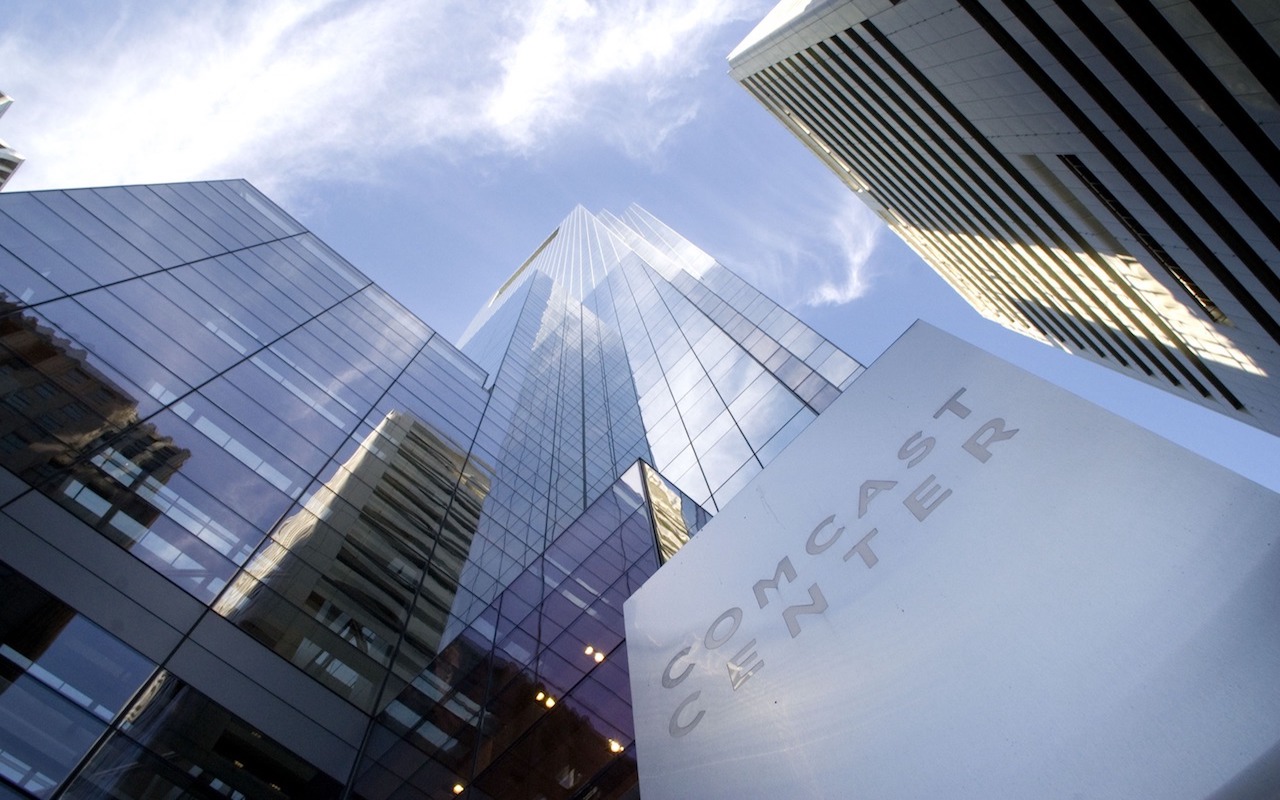
Comcast
- Market value: $180.8 billion
- Dividend yield: 2.1%
- Analysts’ opinion: 20 strong buy, 4 buy, 9 hold, 0 sell, 0 strong sell
- Comcast (CMCSA, $40.31) might not be a consumer favorite – in fact, the cable, broadband and media giant famously rebranded its cable operations as Xfinity to dodge its reputation for poor customer satisfaction. But it’s loaded with “Buy” ratings from Wall Street, and it’s among the top 25 picks among hedge funds’ collective holdings.
Comcast, which also owns NBC Universal, beat out 21st Century Fox (FOXA) in a 2018 bidding war for European pay-TV giant Sky, earning the right to spend $39 billion to access new international markets.
Jefferies Equity Research says Comcast is a “franchise pick” for investors’ portfolios. Among other points in CMCSA’s favor, analysts say NBC Universal is undervalued by the market.
Comcast doesn’t have a high payout – its 2.1% yield is just a hair above the S&P 500’s 1.9%. Nor does it have a particularly rich dividend history. But interestingly, the company initiated its payout in 2008, in the midst of the bear market and financial crisis, and even increased it in 2009. It has kept up its streak of consecutive dividend raises every year since.

Boeing
- Market value: $222.5 billion
- Dividend yield: 2.2%
- Analysts’ opinion: 17 strong buy, 3 buy, 5 hold, 1 sell, 0 strong sell
- Boeing’s (BA, $391.54) path diverted from the market’s slow climb across the month of March following another fatal crash involving one of its popular 737 Max 8 aircraft, which prompted many countries (including the U.S.) to ground the jets until Boeing could solve the issue. The FAA recently said it may be weeks before Boeing could make a necessary software fix.
BA, which has recovered of late, remains down about 7% since the crash, versus a 4% gain for the market. How hedge funds responded in the shorter-term remains to be seen, but it’s likely that the aerospace giant will maintain its allure long-term.
The Dow Jones Industrial Average component is a natural home for hedge funds and other institutional investors. That’s in part because of its long record of consistent share-price outperformance over time. It has beaten the broader market by wide margins over the last one-, three-, five- and 10-year periods, and it’s one of the S&P 500’s best stocks of the past quarter-century.
Boeing also has plenty to offer income investors. Its 2.2% yield won’t bowl anyone over, but the fact that its dividend has soared more than 180% since 2013 should.
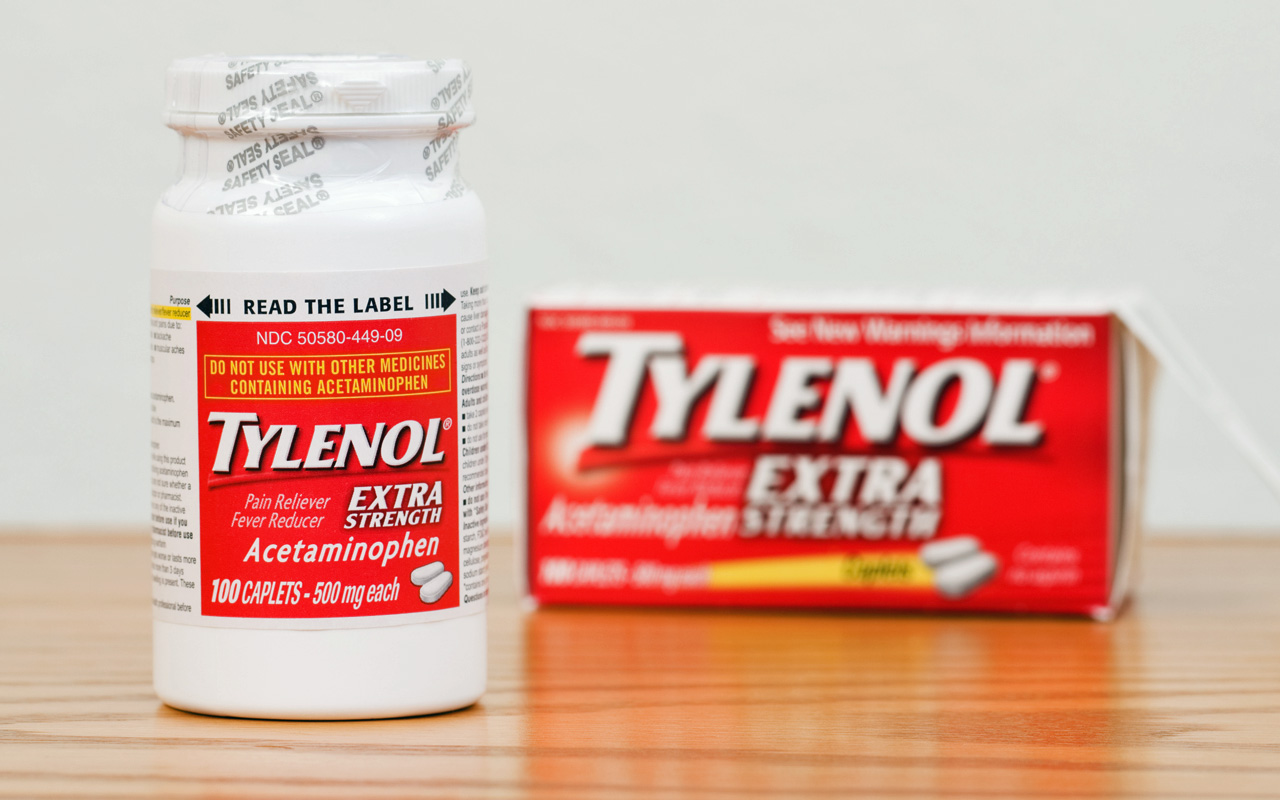
Johnson & Johnson
- Market value: $366.1 billion
- Dividend yield: 2.6%
- Analysts’ opinion: 7 strong buy, 1 buy, 10 hold, 1 sell, 0 strong sell
- Johnson & Johnson (JNJ, $138.98) continues what will be a running theme among hedge funds’ beloved dividend stocks: There are a lot of Dow stocks in the group.
JNJ is the largest health-care stock in the blue-chip index. It’s also a hybrid of sorts. Johnson & Johnson has a traditional pharmaceutical arm that includes products such as autoimmune drug Remicade and cancer drug Imbruvica, which it developed with AbbVie (ABBV). But the company also has a medical-device division, plus it’s responsible for a host of consumer brands that include its namesake Johnson’s Baby Shampoo, Tylenol pain reliever, Listerine mouthwash and Aveeno beauty products.
Johnson & Johnson’s stock has been dogged over reporting suggesting that JNJ had known for years that its talcum powder contained the known carcinogen asbestos, underscoring what many have suspected for quite some time now. It’s also being sued for its alleged role in the opioid crisis.
Still, the stock is only slightly trailing the market over the past year, and hedge funds continue to keep the faith thanks to its market value and its status as dividend royalty. JNJ has increased its annual payout for 56 consecutive years, securing it a spot among the longest-paying S&P Dividend Aristocrats.
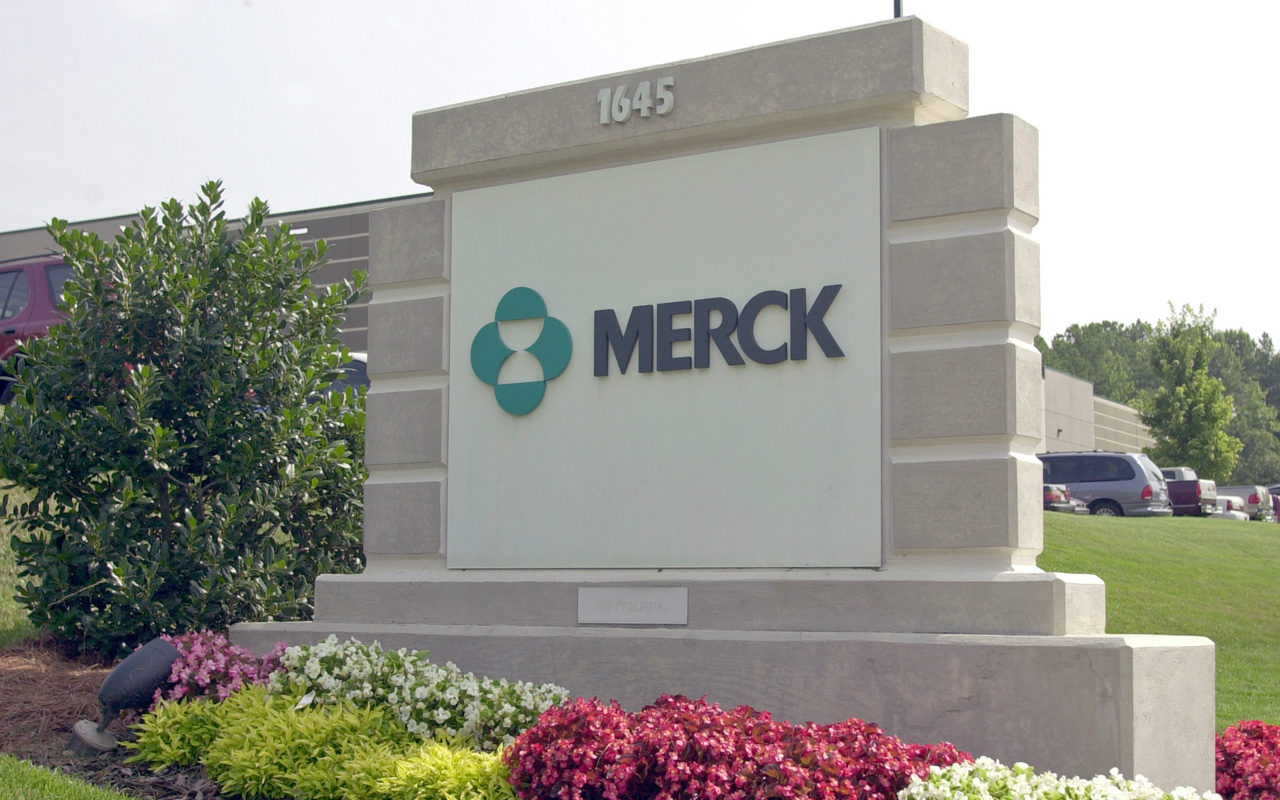
Merck
- Market value: $214.9 billion
- Dividend yield: 2.6%
- Analysts’ opinion: 13 strong buy, 0 buy, 5 hold, 0 sell, 0 strong sell
Pharmaceutical stock and Dow component Merck (MRK, $83.30) is a hit with hedge funds. Its mega-cap status and attendant liquidity are no doubt part of the appeal. But Merck also has a nice stable of blockbuster drugs that may keep the cash flowing.
Cancer drug Keytruda has been approved for a wide number of indications, including advanced melanoma, non-small-cell lung cancer, head and neck cancer, classical Hodgkin’s lymphoma and bladder cancer – and it’s not done. The pharmaceutical giant is seeking additional approvals for Keytruda in other cancers. Merck also has numerous other products in the works, including an Ebola vaccine, antibacterial agent relebactam and heart-failure drug vericiguat.
Merck’s dividend-growth streak is relatively recent, starting in 2011. But it has improved every year since then, including a 14.6% hike that took effect with this year’s first payout. The pharma giant also ranks among the 50 best stocks of all time.

Home Depot
- Market value: $214.6 billion
- Dividend yield: 2.8%
- Analysts’ opinion: 19 strong buy, 3 buy, 12 hold, 0 sell, 0 strong sell
Dow component Home Depot (HD, $195.64) is the nation’s largest home improvement retailer. That makes it, for better or worse, a way for institutional investors such as hedge funds to bet on both the housing market and the health of U.S. consumers.
That said, despite a slew of troubling housing data that has weighed broadly on the homebuilding industry, Home Depot has remained strong, slightly beating the market’s performance with a 9% gain over the past 12 months.
Stifel analysts rate shares in Home Depot at “Buy,” citing “the company’s continued demonstration of executing operational improvements while delivering strong top-line growth.” ISI Evercore recently initiated the stock at “Outperform” (equivalent of “Buy”), calling it a “benchmark multichannel consumer company” and believing that housing pessimism is already baked into the stock’s price.
Home Depot also reached its 10th consecutive year of dividend growth with a massive 32% boost to its quarterly payout in late February.
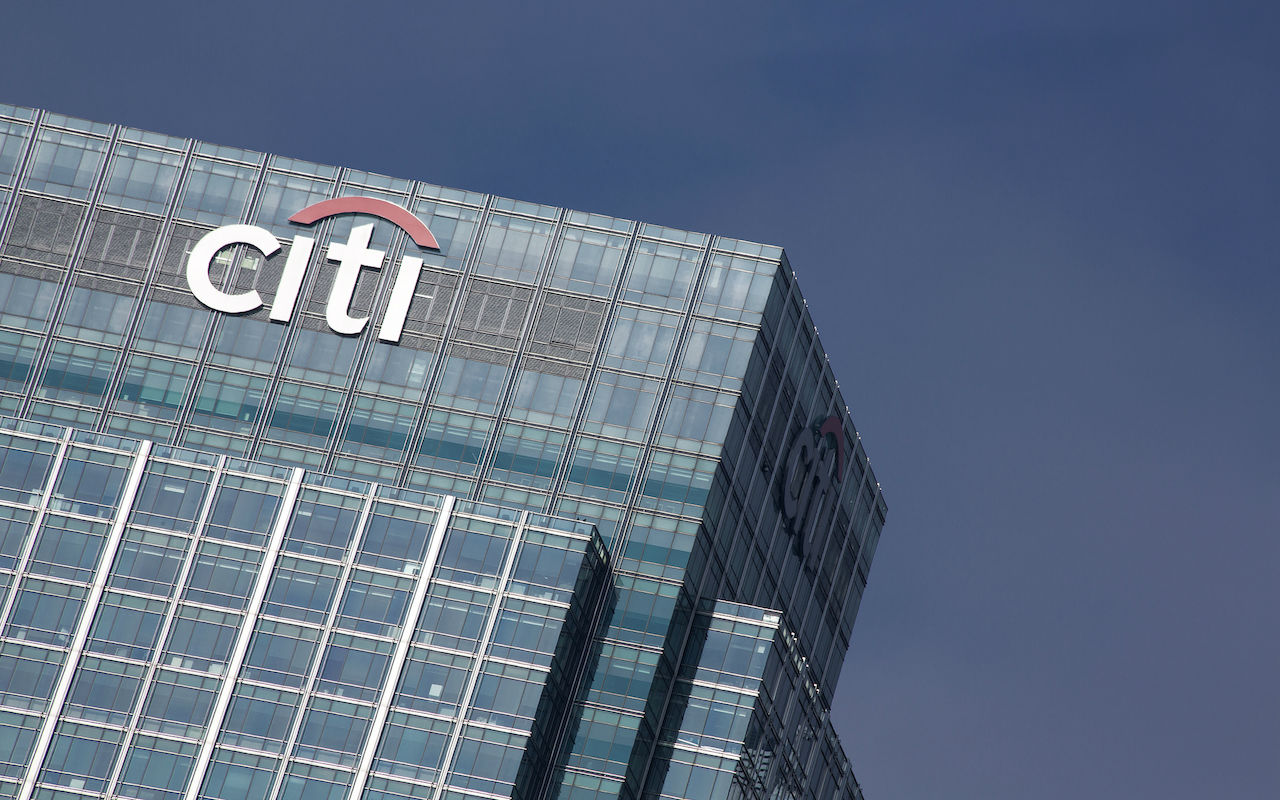
Citigroup
- Market value: $150.4 billion
- Dividend yield: 2.8%
- Analysts’ opinion: 18 strong buy, 3 buy, 5 hold, 0 sell, 1 strong sell
“Big Four” member Citigroup (C, $64.36) is the nation’s fourth-largest bank by both assets and market value, making it a natural blue-chip pick for hedge funds looking to access the American financial sector.
Like Bank of America, Citigroup had to hack away at its dividends in the midst of the financial crisis. Citigroup’s dividend collapsed from $3.20 per share quarterly in 2008 to a penny by the following year.
But to the bank’s credit, it began growing the dividend anew in 2015 with a raise to a nickel per share. A few more aggressive hikes later, and C shares now pay out 45 cents per share. The Federal Reserve must give Citigroup (and other banks) its blessing each time they want to increase their dividends, which should give investors a little more confidence in their ability to maintain it.
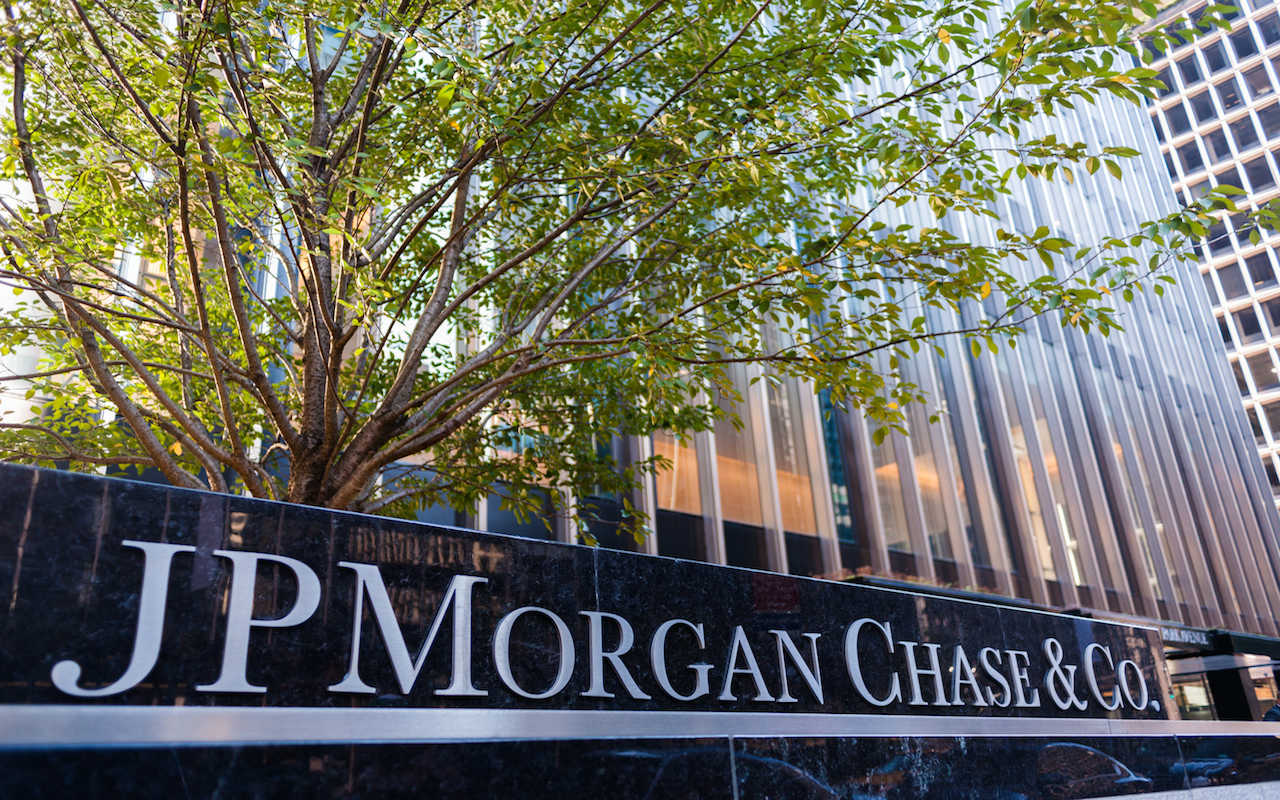
JPMorgan Chase
- Market value: $343.5 billion
- Dividend yield: 3.1%
- Analysts’ opinion: 13 strong buy, 1 buy, 14 hold, 0 sell, 1 strong sell
- JPMorgan Chase (JPM, $104.64) is another Dow stock favored by the hedge-fund community, and it’s the third of the “Big Four” dividend stocks to make this list. It’s also America’s largest bank by assets and market value
Its blue-chip status, huge market value and highly respected – if not occasionally controversial – CEO Jamie Dimon has made JPMorgan a magnet for hedge funds. Warren Buffett also is a fan, holding a $5.3 billion stake in the stock.
That stake swelled in a big way recently, too – Berkshire Hathaway upped its holding by 40% during the final quarter of 2018.
From an income standpoint, JPMorgan also cut deeply during the financial-crisis depths, to 5 cents quarterly, but quickly resumed dividend growth with a hike in 2011. JPM now pays 80 cents per share quarterly – almost 43% more income than it was delivering at this same time last year.
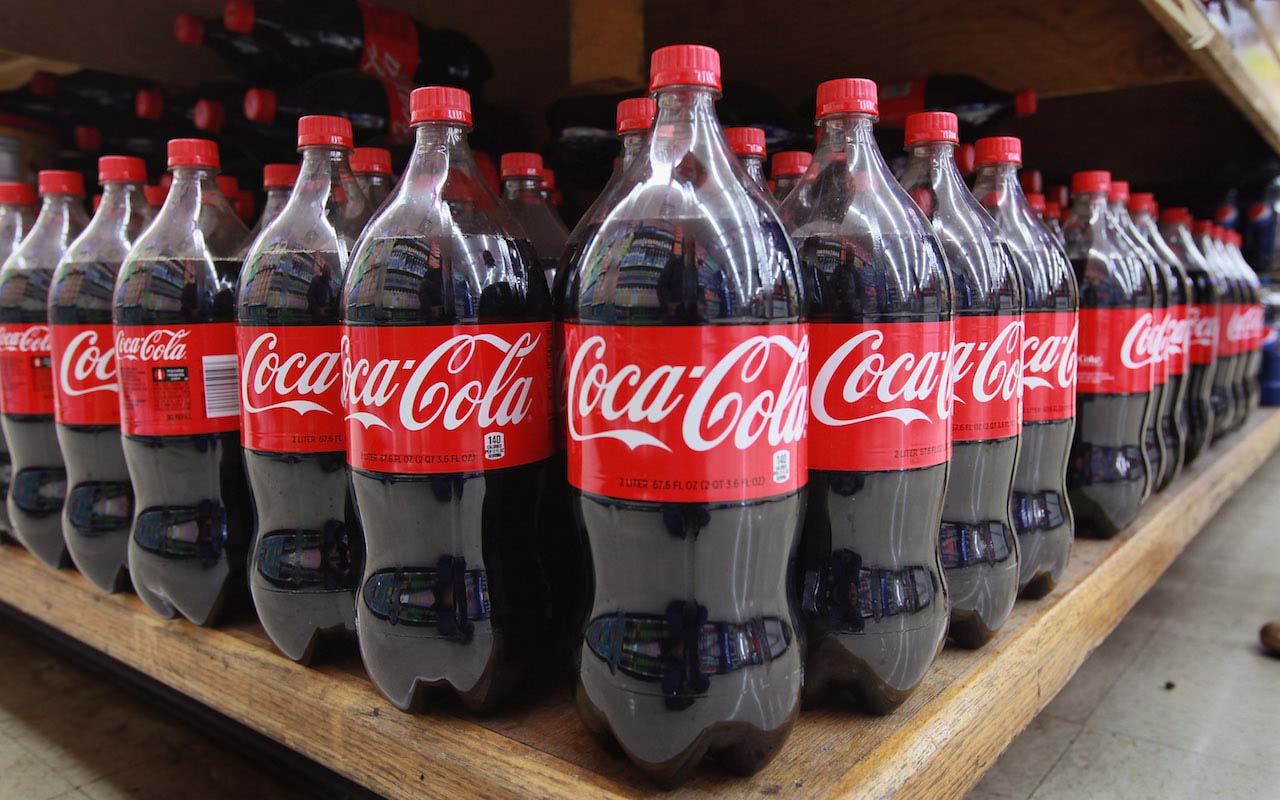
Coca-Cola
- Market value: $199.7 billion
- Dividend yield: 3.4%
- Analysts’ opinion: 9 strong buy, 3 buy, 14 hold, 0 sell, 0 strong sell
- Coca-Cola (KO, $46.72) is, surprise surprise, another Dow dividend stock that finds itself widely held among the hedge-fund crowd. The purveyor of sugary drinks also is a longtime, much beloved holding of Buffett’s Berkshire Hathaway.
Yes, Coca-Cola isn’t quite the stock it once was, thanks to America’s (and increasingly a global) push back against sugary drinks as their effects on human health are better understood. That’s precisely why the company recently has sought to diversify via acquisitions, including Australian probiotic-focused Mojo Beverages and multinational coffeehouse Costa Coffee last year.
But there’s no mystery behind KO’s popularity – it’s a big, stable blue chip that deals in consumer staples, making it a reliable holding for institutional investors looking for safety.
It’s also an income champion. Coke has paid a quarterly dividend since 1920, and that dividend has increased annually for the past 57 years.
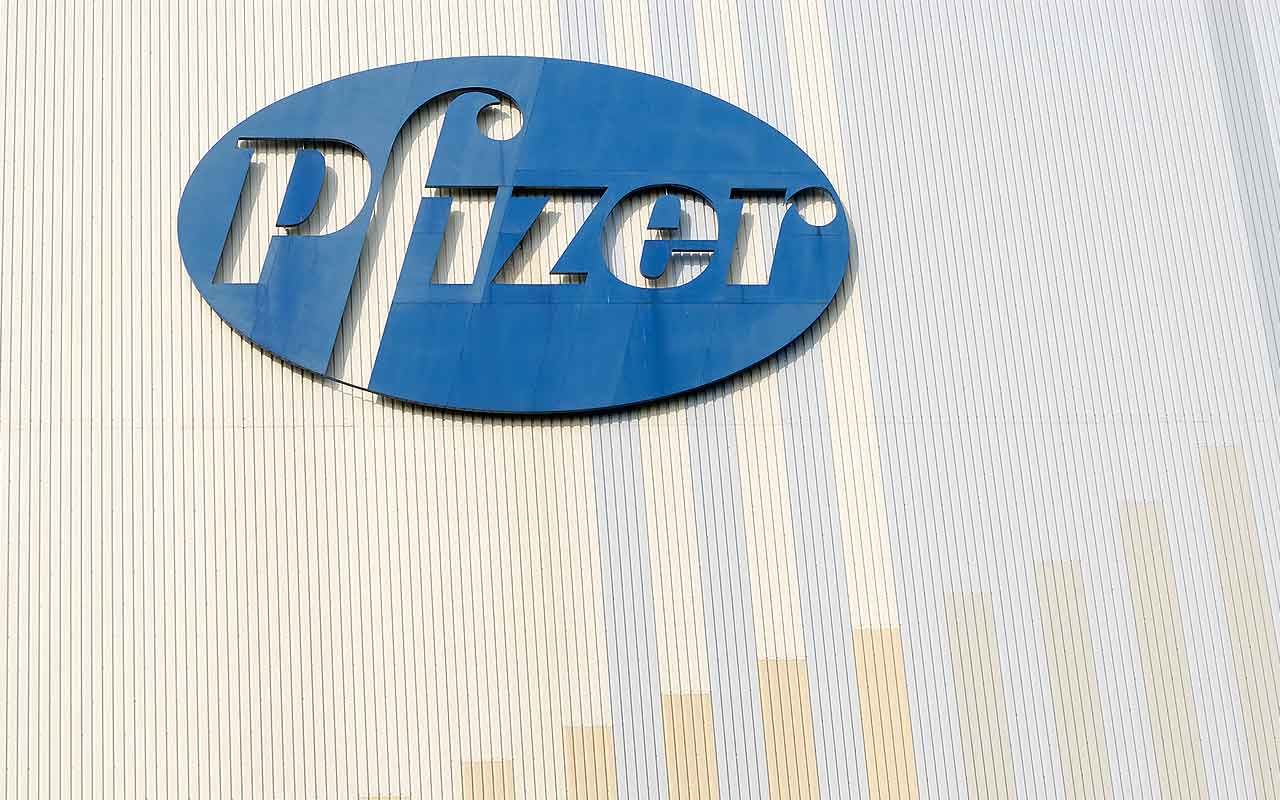
Pfizer
- Market value: $231.7 billion
- Dividend yield: 3.4%
- Analysts’ opinion: 5 strong buy, 2 buy, 8 hold, 0 sell, 0 strong sell
- Pfizer (PFE, $42.84) – the largest pure-play pharmaceutical company in America, and yet another Dow Jones component – is a natural fixture in any institutional portfolio seeking a balance of dividends and growth.
Pfizer was forced to cut back its dividends in 2009. But while plunging profits had something to do with it, the move also came along a need to preserve cash as it spent $68 billion to buy out drugmaker Wyeth. The Big Pharma outfit then resumed dividend growth in 2010, and it has kept its foot softly on the pedal ever since with a series of 2-cent raises year after year, including in 2019.
Pfizer is responsible for Lipitor, the best-selling drug of all time, as well as blood-thinner Eliquis and rheumatoid-arthritis treatment Xeljanz. These drugs, among others, help fund Pfizer’s growing dividend and put PFE among the hedge-fund community’s favorite dividend stocks.
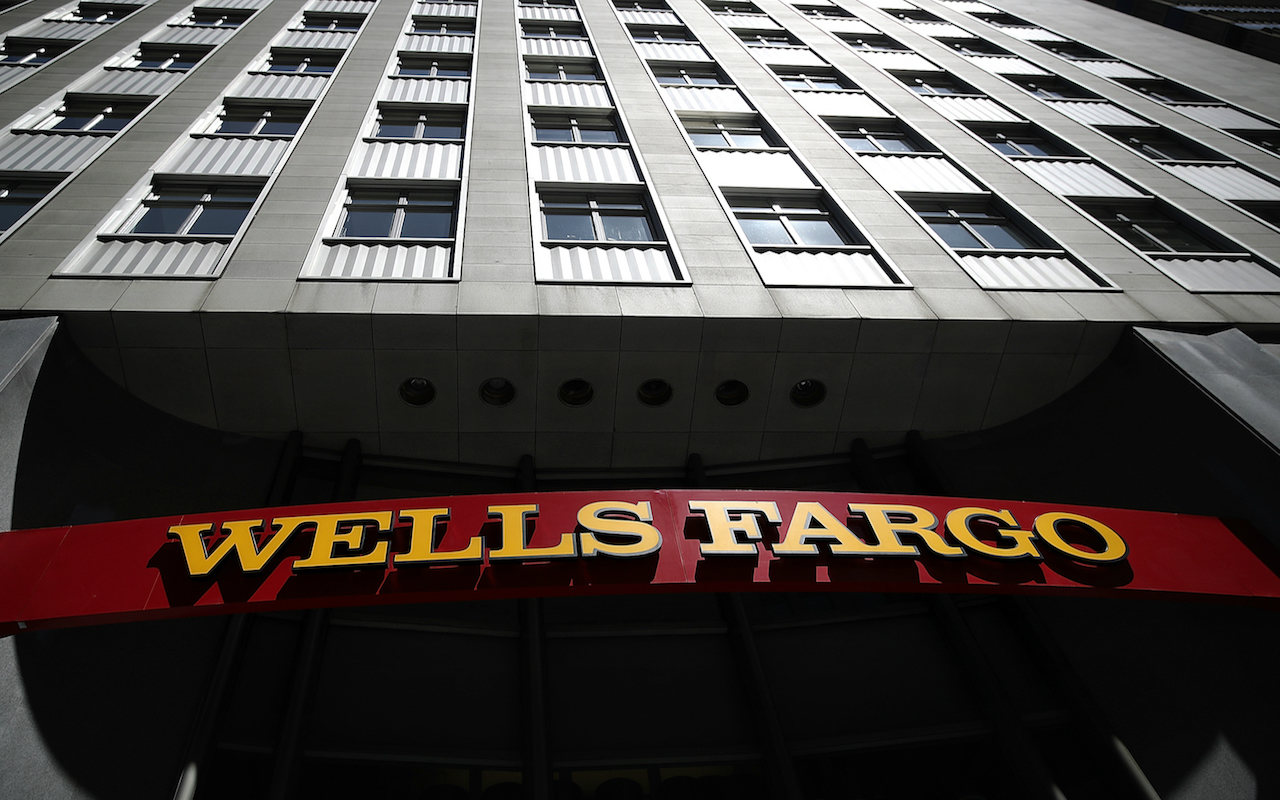
Wells Fargo
- Market value: $219.8 billion
- Dividend yield: 3.7%
- Analysts’ opinion: 11 strong buy, 2 buy, 14 hold, 1 sell, 2 strong sell
- Wells Fargo’s (WFC, $48.81) sham-accounts scandal took yet another victim – this time CEO Timothy Sloan, who took over for former chief John Stumpf after the company had opened millions of fake accounts in their customers’ names. Sloan, a three-decade veteran of the “Big Four” bank, suddenly stepped down near the end of March after failing to put enough distance between the bank and its slew of recent missteps.
That’s yet another disappointment to WFC shareholders, who now are sitting on market underperformance for every meaningful time period over the past 15 years.
However, the nation’s third-largest bank by assets remains popular with hedge funds, analysts and, yes, Warren Buffett.
Perhaps hedge funds smell a bargain. Analysts at Sandler O’Neill praise Wells’ cost controls and aggressive capital management in assigning a “Buy” rating on the stock. WFC also is a decent dividend play. Its hefty 3.7% yield is nearly twice the market’s rate. That’s thanks to a slightly more aggressive dividend-growth schedule that more closely mirrors JPMorgan than Citi or BofA.
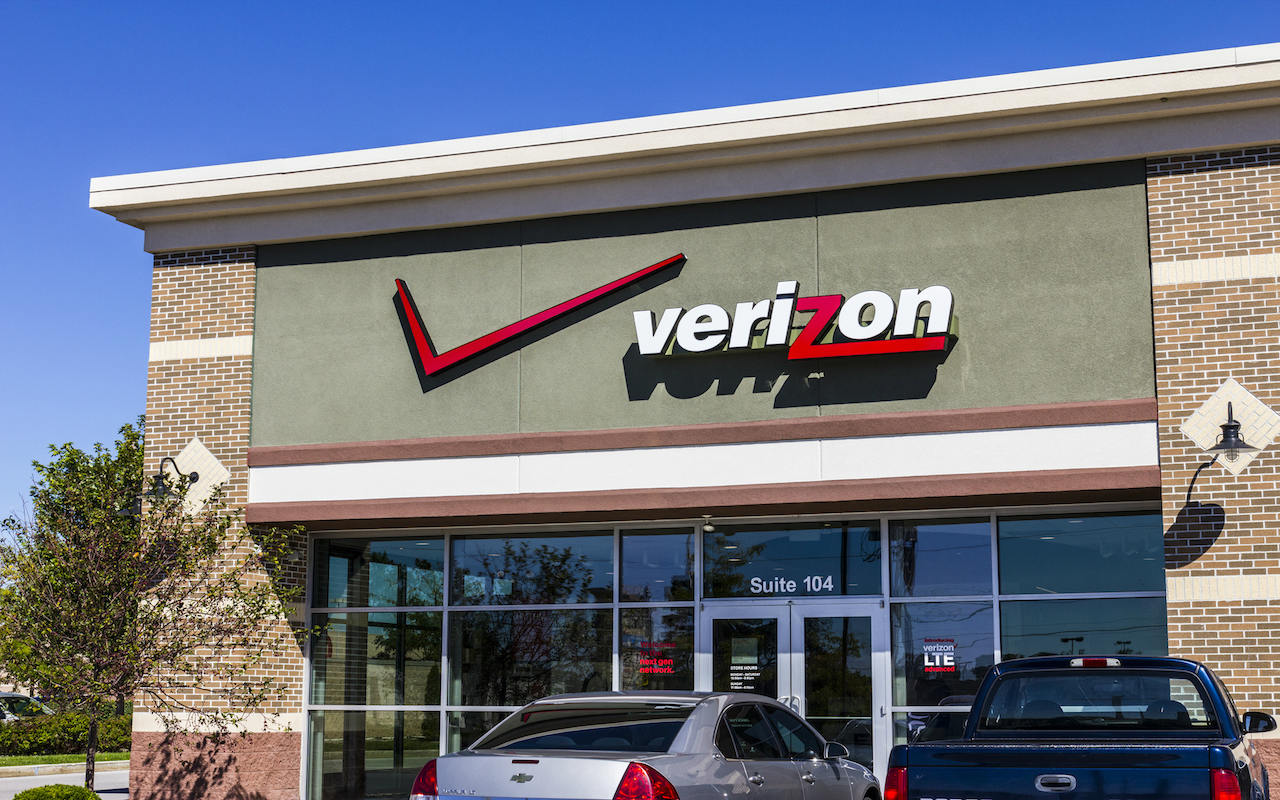
Verizon
- Market value: $241.9 billion
- Dividend yield: 4.1%
- Analysts’ opinion: 12 strong buy, 0 buy, 17 hold, 1 sell, 0 strong sell
Hedge funds seeking out defense and income don’t need to think much about holding Verizon (VZ, $59.09). The blue-chip telecom stock, at 4%, is the highest yielder among hedge fund favorites. It also has improved its payout every year since 2007, making it a Dividend Achiever. The group requires a minimum of a decade of dividend growth, versus 25 years for the Dividend Aristocrats, but it’s still a substantial feat.
Verizon isn’t going to trick anyone into thinking it’s a growth stock. In fact, in December 2018, the company had to take a $4.6 billion writedown on Oath – the company’s merged bet of AOL and Yahoo – before rebranding it Verizon Media in 2019.
But Verizon is a defensive telecom stock that offers significant yield and a beta of 0.51 that indicates the stock is roughly half as volatile as the S&P 500 – traits that will attract any hedge fund looking for portfolio ballast.
VZ still has an enviable track record as an investment. From 1984 to 2016, the stock delivered an annualized return of 11.2%, which created $165.1 billion in wealth.
Profit and prosper with the best of Kiplinger's advice on investing, taxes, retirement, personal finance and much more. Delivered daily. Enter your email in the box and click Sign Me Up.

Dan Burrows is Kiplinger's senior investing writer, having joined the publication full time in 2016.
A long-time financial journalist, Dan is a veteran of MarketWatch, CBS MoneyWatch, SmartMoney, InvestorPlace, DailyFinance and other tier 1 national publications. He has written for The Wall Street Journal, Bloomberg and Consumer Reports and his stories have appeared in the New York Daily News, the San Jose Mercury News and Investor's Business Daily, among many other outlets. As a senior writer at AOL's DailyFinance, Dan reported market news from the floor of the New York Stock Exchange.
Once upon a time – before his days as a financial reporter and assistant financial editor at legendary fashion trade paper Women's Wear Daily – Dan worked for Spy magazine, scribbled away at Time Inc. and contributed to Maxim magazine back when lad mags were a thing. He's also written for Esquire magazine's Dubious Achievements Awards.
In his current role at Kiplinger, Dan writes about markets and macroeconomics.
Dan holds a bachelor's degree from Oberlin College and a master's degree from Columbia University.
Disclosure: Dan does not trade individual stocks or securities. He is eternally long the U.S equity market, primarily through tax-advantaged accounts.
-
 Nasdaq Leads a Rocky Risk-On Rally: Stock Market Today
Nasdaq Leads a Rocky Risk-On Rally: Stock Market TodayAnother worrying bout of late-session weakness couldn't take down the main equity indexes on Wednesday.
-
 Quiz: Do You Know How to Avoid the "Medigap Trap?"
Quiz: Do You Know How to Avoid the "Medigap Trap?"Quiz Test your basic knowledge of the "Medigap Trap" in our quick quiz.
-
 5 Top Tax-Efficient Mutual Funds for Smarter Investing
5 Top Tax-Efficient Mutual Funds for Smarter InvestingMutual funds are many things, but "tax-friendly" usually isn't one of them. These are the exceptions.
-
 Nasdaq Leads a Rocky Risk-On Rally: Stock Market Today
Nasdaq Leads a Rocky Risk-On Rally: Stock Market TodayAnother worrying bout of late-session weakness couldn't take down the main equity indexes on Wednesday.
-
 Stocks Make More Big Up and Down Moves: Stock Market Today
Stocks Make More Big Up and Down Moves: Stock Market TodayThe impact of revolutionary technology has replaced world-changing trade policy as the major variable for markets, with mixed results for sectors and stocks.
-
 Small Caps Step Up, Tech Is Still a Drag: Stock Market Today
Small Caps Step Up, Tech Is Still a Drag: Stock Market TodayEarly strength gave way to AI skepticism again as a volatile trading week ended on another mixed note.
-
 AI Unwind Takes 2% Off the Nasdaq: Stock Market Today
AI Unwind Takes 2% Off the Nasdaq: Stock Market TodayMarkets are paying more and more attention to hyperscalers' plans to spend more and more money on artificial intelligence.
-
 Strong Jobs Report Leaves Markets Flat: Stock Market Today
Strong Jobs Report Leaves Markets Flat: Stock Market TodayInvestors, traders and speculators are taking time to weigh the latest labor market data against their hopes for lower interest rates.
-
 Dow Hits New High Ahead of January Jobs Report: Stock Market Today
Dow Hits New High Ahead of January Jobs Report: Stock Market TodayA weak reading on December retail sales was in focus ahead of Wednesday's delayed labor market data.
-
 Tech Stocks Fuel Strong Start to the Week: Stock Market Today
Tech Stocks Fuel Strong Start to the Week: Stock Market TodayThe blue-chip Dow Jones Industrial Average extended its run above 50,000 on Monday and there are plenty of catalysts to keep the 30-stock index climbing.
-
 Dow Adds 1,206 Points to Top 50,000: Stock Market Today
Dow Adds 1,206 Points to Top 50,000: Stock Market TodayThe S&P 500 and Nasdaq also had strong finishes to a volatile week, with beaten-down tech stocks outperforming.
